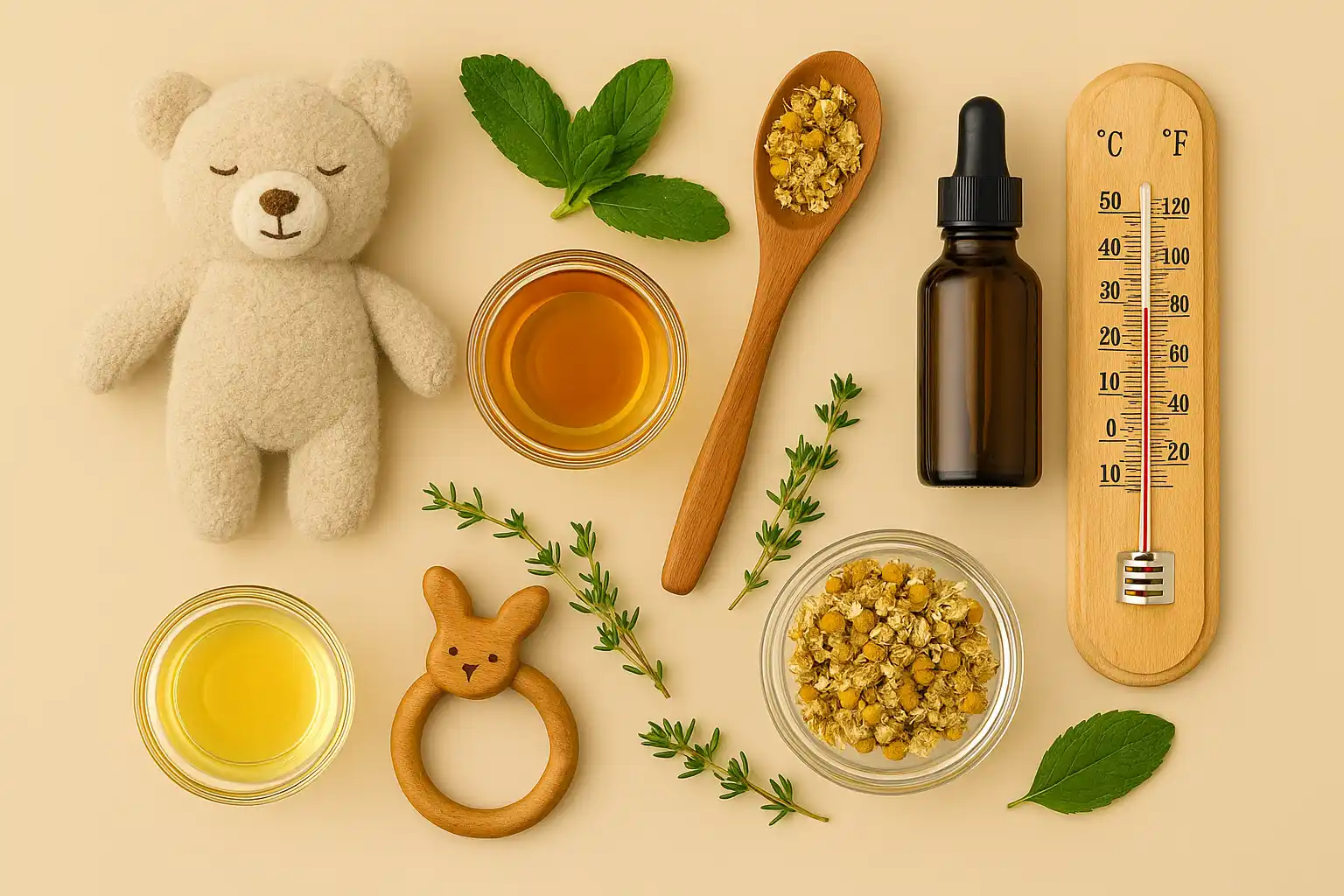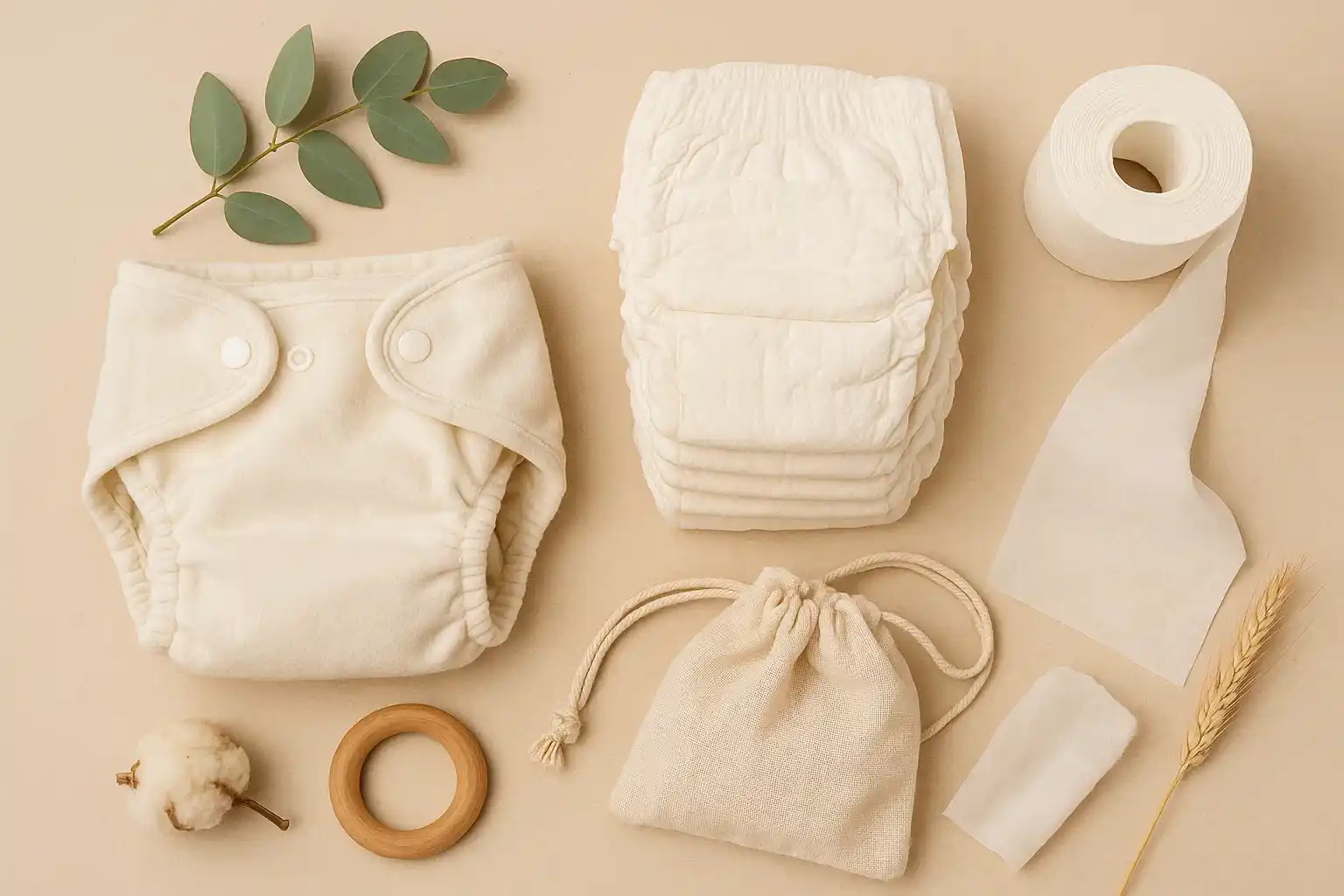Nature's Gentle Touch: Exploring Natural Remedies for Common Childhood Ailments

As parents, our primary instinct is to ensure the health and well-being of our children. When those inevitable sniffles, tummy troubles, or minor discomforts arise, many of us instinctively reach for over-the-counter medications. However, for those seeking gentler, more holistic approaches, nature offers a wealth of remedies that have been used for generations to soothe and support young bodies. Exploring these natural options can empower parents with a wider range of tools to address common childhood ailments in a way that aligns with a preference for natural and sustainable solutions.
This comprehensive exploration delves into the world of natural remedies for common childhood ailments, offering valuable insights into their traditional uses, potential benefits, and practical application. Our objective is to educate you on these gentle alternatives, encouraging and inspiring you to build a natural first-aid toolkit while always emphasizing the importance of informed decision-making and professional medical advice when necessary. Embracing nature's pharmacy can provide a comforting and sustainable approach to caring for your child's minor health concerns.
Building Your Natural First-Aid Toolkit: Gentle Allies for Childhood Discomforts
Creating a collection of natural remedies involves understanding the properties of various herbs, oils, and simple household ingredients. Here are some key natural allies to consider:
-
Honey: A soothing demulcent with antibacterial properties, honey can be particularly effective for relieving coughs, especially nighttime coughs in children over one year of age. Choose raw, local honey whenever possible for its potential additional benefits. A teaspoon of honey alone or mixed in warm water with lemon can provide comfort.
-
Ginger: Known for its anti-inflammatory and anti-nausea properties, ginger can be helpful for soothing upset stomachs, motion sickness, and mild digestive issues. Offer small sips of ginger tea (made by steeping fresh ginger in hot water) or ginger candies (ensure they are safe for the child's age).
-
Chamomile: With its calming and anti-inflammatory properties, chamomile can help to soothe anxiety, promote relaxation, and ease mild tummy discomfort. Chamomile tea (cooled to a safe temperature) can be offered in small amounts to older babies and toddlers.
-
Peppermint: The menthol in peppermint can help to clear nasal congestion and soothe headaches. Peppermint essential oil (diluted appropriately with a carrier oil like coconut or almond oil) can be gently rubbed on the chest or temples of older children. Peppermint tea can also be offered in small amounts. Caution: Avoid undiluted essential oils on young children and infants.
-
Eucalyptus: Known for its decongestant and expectorant properties, eucalyptus essential oil (always diluted) can help to relieve coughs and nasal congestion. Use cautiously and sparingly, and never internally. Diffusing eucalyptus oil in a well-ventilated room or using a diluted chest rub for older children can be beneficial. Caution: Not recommended for infants under six months.
-
Saline Solution: A simple and effective remedy for nasal congestion, saline solution (available as drops or sprays) helps to thin mucus and clear nasal passages, making breathing easier. It is safe for all ages.
-
Warm Compresses: Applying a warm compress to the forehead can help to relieve mild headaches. A warm compress on the abdomen can soothe tummy aches.
-
Cool Compresses: A cool compress applied to the forehead can help to reduce fever discomfort. Cool compresses can also be soothing for minor bumps and bruises.
-
Arnica: A homeopathic remedy often used topically to help reduce bruising, swelling, and muscle soreness from minor injuries. Available as creams, gels, and ointments.
-
Calendula: Known for its skin-soothing and anti-inflammatory properties, calendula cream or ointment can be helpful for minor skin irritations, rashes, and cuts.
Addressing Common Childhood Ailments Naturally
Here are some specific ways to utilize these natural remedies for common childhood ailments:
-
Coughs and Colds:
- Honey: For children over one year, offer a teaspoon of honey as needed for cough relief.
- Saline Nasal Drops/Spray: Use frequently to clear nasal congestion.
- Humidifier: Use a cool-mist humidifier to moisten the air, which can help to soothe irritated airways.
- Warm Baths: A warm bath can help to ease congestion and promote relaxation.
- Elevate Head: Elevating your child's head during sleep can help with breathing.
-
Fever:
- Rest: Encourage plenty of rest.
- Fluids: Ensure adequate fluid intake to prevent dehydration.
- Cool Compresses: Apply cool compresses to the forehead or back of the neck for comfort.
- Lukewarm Baths: A lukewarm (not cold) bath can help to gently lower body temperature.
-
Tummy Aches and Digestive Upset:
- Ginger Tea: For older children, offer small sips of mild ginger tea.
- Chamomile Tea: Can help to soothe mild tummy discomfort in older babies and toddlers.
- BRAT Diet (Bananas, Rice, Applesauce, Toast): A bland diet can be helpful for mild digestive upset.
- Probiotics: Consider age-appropriate probiotics to support gut health.
-
Minor Skin Irritations and Rashes:
- Calendula Cream/Ointment: Apply gently to soothe irritated skin.
- Oatmeal Baths: A lukewarm bath with colloidal oatmeal can relieve itchy skin from eczema or chickenpox.
- Cool Compresses: Can help to soothe inflammation and itching.
-
Minor Bumps and Bruises:
- Cool Compresses: Apply immediately to reduce swelling.
- Arnica Cream/Gel: Apply gently to help reduce bruising and soreness.
Sustainability in Natural Remedies: A Holistic Approach
Choosing natural remedies can align with a more sustainable lifestyle in several ways:
- Reduced Reliance on Pharmaceuticals: Lessening our dependence on manufactured medications can reduce the environmental impact associated with their production, packaging, and distribution.
- Utilizing Locally Sourced Ingredients: When possible, using locally sourced honey or homegrown herbs can further minimize the environmental footprint.
- Minimal Packaging: Natural remedies often come with less elaborate packaging compared to over-the-counter medications.
- Connecting with Nature's Pharmacy: Embracing natural remedies can foster a greater appreciation for the healing power of the natural world and encourage a more holistic approach to health.
Important Considerations and When to Seek Professional Help
While natural remedies can be valuable tools for addressing minor ailments, it is crucial to exercise caution and seek professional medical advice when necessary:
- Always consult your pediatrician: Before using any natural remedy, especially for infants and young children, discuss it with your pediatrician to ensure it is safe and appropriate for your child's age and condition.
- Dosage and Preparation: Use natural remedies in appropriate dosages and follow safe preparation guidelines.
- Severity of Symptoms: If your child's symptoms are severe, persistent, or worsening, do not rely solely on natural remedies. Seek professional medical attention promptly.
- Underlying Conditions: Be aware of any underlying health conditions your child may have, as some natural remedies may interact with certain conditions or medications.
- Allergic Reactions: Be mindful of potential allergic reactions to herbs, essential oils, or other natural substances. Introduce new remedies one at a time and watch for any adverse reactions.
- Information is not a substitute for medical advice: The information provided here is for educational purposes only and should not be considered a substitute for professional medical advice, diagnosis, or treatment.
Nature offers a gentle and sustainable way to address many common childhood ailments, providing parents with a valuable complement to conventional medicine. By building a natural first-aid toolkit and understanding the properties of various remedies, you can offer your child comfort and support while aligning with a preference for natural and sustainable solutions. However, always prioritize your child's safety and well-being by seeking professional medical advice when needed, ensuring a balanced and informed approach to their health care.
Related Blogs

Unplug and Imagine: Choosing Battery-Free Toys for Engaging and Sustainable Playtime
Foster imagination and save energy with manual musical toys, story books, and nature play.

The Great Diaper Debate: Navigating Cloth vs. Eco-Disposables for a Sustainable Start
Comparison of sustainable alternatives to help you make informed decisions.

Equipping Young Minds, Protecting Our Planet: Sustainable School Supplies Kit
Insights on creating a sustainable school supplies kit in a sustainable way.

Bathtime, Simplified: Eco-Friendly Alternatives to Bulky Plastic Baby Baths
Reduce manufacturing impact and clutter with sink bath seats, inflatable tubs, or repurposed containers.

A Gentle Foundation: Choosing Eco-Friendly and Non-Toxic Changing Mats for Your Baby
Opt for organic cotton, cork-based, or recycled textile changing mats free from PVC and phthalates.

Diapering with Intention: Exploring Eco-Friendly Alternatives to Disposable Diapers
Cut down drastically on landfill waste with cloth, compostable, or hybrid diaper systems.
Stay in the Loop
Get tips and insights tailored to your interests — no spam, just sustainability.